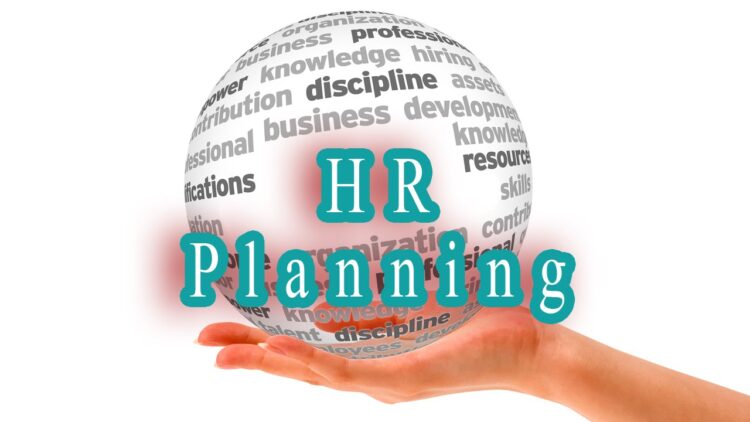HR departments are crucial to every workplace. Not only do they play a critical role in recruiting new professionals, but their work also extends to many other areas of importance.
They ensure that an organisation works smoothly because they deal directly with managing the company’s most important asset – its workers. They are in charge of employee salaries and benefits, along with maintaining decorum in the workplace. Their role puts them in charge of recruiting and managing people in a rather exhaustive manner.
Such is the complex nature of an HR department. Many new businesses want to start an HR department or improve upon their existing structure. Some businesses also outsource to third-party companies like CZ Consultancy that offer HR services so they can focus their manpower onto more important tasks. Here’s a simplified guide to the complete workings of an HR department.
Page Contents
Recruitments

- Source: hr-gazette.com
The work of the department doesn’t end upon posting job vacancies on LinkedIn. The department has to actively promote their openings to ensure that they get the best candidates possible.
If your company’s brand has a good reputation in the general public, you will have a relatively easier time spreading the message because people inside and outside your organisation will be eager to be a part of your team. Many companies have begun to use talenteria.com to get ahead of their competition.
However, the department still has to work on marketing and ensure that they conduct their recruitments in several rounds and execute all of them perfectly. It is your responsibility to make the recruitment process transparent, fair, and professional so that everyone who engages with your company as an applicant respects your company.
What else do they do?
Let’s continue with the next obvious question. What else does Human Resources Management do? It deals with employees in regards to hiring, management, and other forms of assistance to the workforce. The key responsibilities of an HR department are –
- Hiring
- Performance review and feedback
- Employee morale and increasing work satisfaction
- Safety and wellness in terms of physical and mental health
- Perks
- Dispute resolution
The Human Resources department of any company defines the culture and the internal reputation of a company. Professionals are always looking for companies with a good working environment. Moreover, companies that treat their employees well observe a higher employee retention rate.
Human Resource Planning

- Source: youtube.com
The HR department is responsible for analysing the future needs of an organisation and planning accordingly. They decide on the number and the type of people an organisation needs.
The workforce of a company is divided into different departments, and all departments require an additional pool of people. During planning, HR professionals see the future of the company and analyse their existing departments. Based on several factors, they decide the profiles under which the company will recruit more employees in the future.
It’s essential to embrace digital technological solutions in human resource planning. Monitoring, communicating, screening, and follow-ups are made faster and easier using leading technologies in hiring and recruitments. Companies with human resource departments investing in the best applicant tracking systems, can source top talents with excellent profiles just like like https://recruitcrm.io.
Performance Review
After hiring new people in your team, the next task is to keep a check on their performance and see how well they are doing to fulfil their duties. Performance reviews can be an opportunity to celebrate your most competent workers and be a wake-up call for an employee who may lag behind the rest of his team.
A performance review is done using the feedback tools in which coworkers, managers, subordinates, and sometimes even customers review an employee’s performance. These kinds of tools can be beneficial in providing feedback and constructive criticism.
The entire goal of a performance review is to have a chat with your weakest employees and get into the methods with which they can be more productive when it comes to their work.
Here’s how to go about performance reviews:
- Create An Evaluation Form: For every evaluation, use a standard performance review form to ensure fair, consistent, and objective results. The evaluation form should focus on the key job performance areas, making performance reviews more relevant and meaningful.
- Specify Standard Performance Measures: It’ll allow you to assess job performance objectively. You can base the standard performance measures on the duties and responsibilities included in the job descriptions of different positions in your company. A more effective way to specify performance measures consists of the quantity and quality of tasks performed for a particular period.
- Set Feedback Guidelines: Guidelines for feedback in performance reviews include giving balanced feedback, outlining expectations, and encouraging employee feedback. It’s the main coaching session of the entire performance review process.
- Developing Disciplinary Procedures: Poor performance reviews shouldn’t be tolerated. Improve productivity by creating disciplinary procedures for due process.
Growth

- Source: techprostudio.com
Your employees will be happy, cheerful, and excited if they’re getting to learn new things on the job every day. A job that leads to the growth of an individual is highly critical. Technology and the world keeps evolving, and in such a dynamic environment, you need to ensure that the workforce you have today is ready to face the challenges of tomorrow.
It’s the responsibility of the HR department to take care of the learning needs of a company’s employees. Companies usually have a set annual budget that they need to distribute amongst their employees.
In most countries, it is mandatory for the company to take care of its employees, whereas, in other countries like the US, the process is unregulated and executed at the company’s discretion.
Growth also includes helping your employees in planning their career. By engaging directly with your employees’ personal ambitions, you’re conveying a strong message to them. You’re letting them know that they are working in a company that cares about its individuals and is at their disposal to help them achieve their career goals.
Rewards
It is a scientifically proven fact that positive reinforcement works much better than negative reinforcement. Decades ago, companies would take disciplinary actions and crack down on their employees to increase their productivity. The results would always be abysmal.
Today, companies are highly competitive, and every company wants the best people in the business to come work for them. In this environment, you must reward your employees fairly and regularly based on their merit.
Rewards can range from a salary increase to outstanding career opportunities, status, recognition, a good organisational culture, and a rewarding work-life balance. The critical point to know is that rewards mean more than just money.
After a certain point, employees choose leadership roles and authority over monetary benefits. Some of your employees may be ambitious, and their reward can be in the form of a career opportunity. On the other hand, you may have a hard-working employee who’s satisfied with his position in life, and a monetary raise can make him work even harder.
Maintaining relations

- Source: keka.com
HR departments are responsible for dealing with unions and dealing with them directly. More and more countries are seeing higher percentages of workers forming a union, and it is only fair that you are ready to deal with unions as and when they appear.
As the HR department, you can be in constant touch with the union members and their leaders. Being in such an environment gives you the insight to see how your workers respond to new company policies. It also allows you to prematurely mitigate risks and get ahead of any conflicts that may have arisen without your interference.
Employee Training and Development: An Investment in Future Success
Aside from the basic responsibilities of recruitment and maintaining workplace decorum, an HR department often plays a pivotal role in employee training and development. With the rapidly changing technology and work environment, it’s imperative for businesses to keep their workforce’s skills up-to-date and competitive.
HR departments can devise and implement training programs, encouraging continuous learning, skill enhancement, and finding ways to implement different performance measures. They can partner with industry experts or use online platforms to offer professional development opportunities. Additionally, they should foster a culture of continuous learning, making training and development a regular part of the employees’ work lives, not merely an occasional occurrence.
They ensure that an organization works smoothly because they deal directly with managing the company’s most important asset – its workers. They are in charge of employee salaries and benefits, along with maintaining decorum in the workplace.
Their role puts them in charge of recruiting and managing people in a rather exhaustive manner. To streamline their responsibilities effectively, many HR professionals rely on innovative HR management software like matchr.com to enhance their efficiency and productivity.
Legal Compliance: Safeguarding the Business
Navigating the complex landscape of employment laws and regulations is a key responsibility that falls to the HR department. This involves ensuring that the company complies with all local, state, and federal labor and employment laws. HR professionals need to stay current on changing employment legislation, adjust workplace policies accordingly, and advise management on the legal implications of HR decisions.
This may encompass a range of issues including wages, benefits, and termination policies, to harassment prevention and equal opportunity employment. By ensuring legal compliance, the HR department not only protects the employees but also shields the organization from potential lawsuits and reputational harm.
Promoting Diversity and Inclusion: Enriching the Work Environment

Source: forbes.com
In the increasingly globalized business environment, promoting diversity and inclusion has become more important than ever. HR departments should work to implement policies that actively encourage diversity in terms of race, gender, age, religion, sexual orientation, and other dimensions. A diverse workforce fosters creativity, innovation, and improves problem-solving by incorporating a variety of perspectives.
Moreover, an inclusive work environment ensures that all employees feel valued and respected, which can lead to improved employee satisfaction and retention. HR professionals can also arrange training sessions to promote cultural competence and reduce biases in the workplace.
Remote Work Management: Adapting to the New Normal
The global COVID-19 pandemic has accelerated the shift towards remote work, necessitating HR departments to effectively manage this new style of work. HR needs to establish policies that address unique remote work challenges, such as communication, collaboration, data security, and work-life balance. They should also explore ways to maintain employee engagement and team spirit in a virtual environment.
For example, HR could organize virtual team-building activities or provide online platforms for casual social interaction among employees. Additionally, they must ensure that remote workers have access to the necessary resources and support for their physical and mental well-being.
Employee Engagement and Organizational Culture: Boosting Morale and Productivity
While the HR department’s role in defining a company’s culture is acknowledged, it’s essential to underline its importance in promoting employee engagement. A positive and supportive work culture can significantly increase job satisfaction, boost morale, and enhance productivity.
HR should design and implement programs aimed at boosting employee engagement, such as recognition and reward systems, opportunities for career development, and initiatives to improve work-life balance. By creating an environment where employees feel valued and engaged, companies can enjoy lower turnover rates, higher productivity, and improved overall performance.





